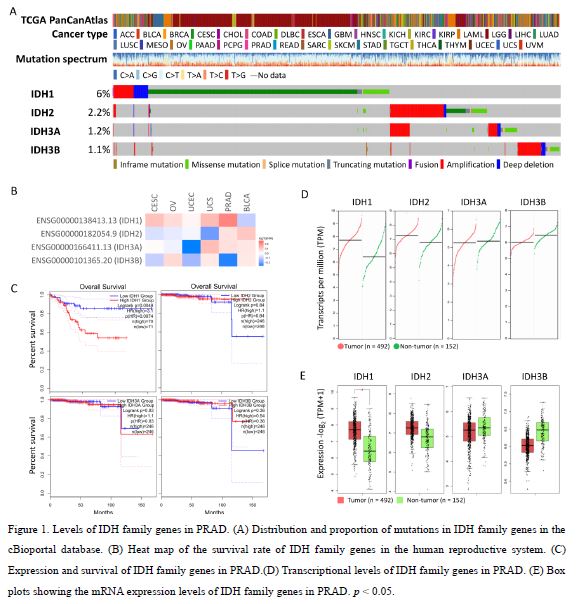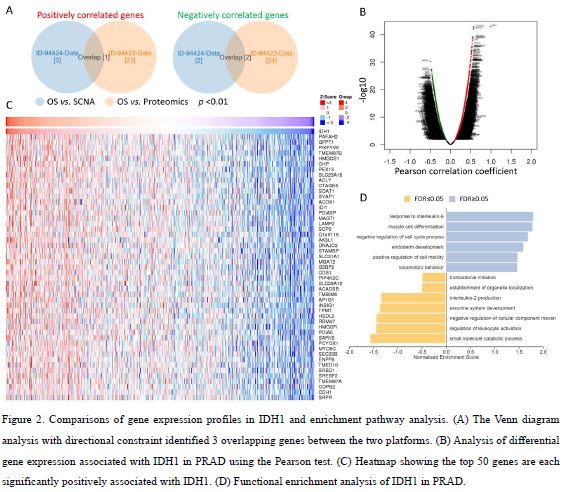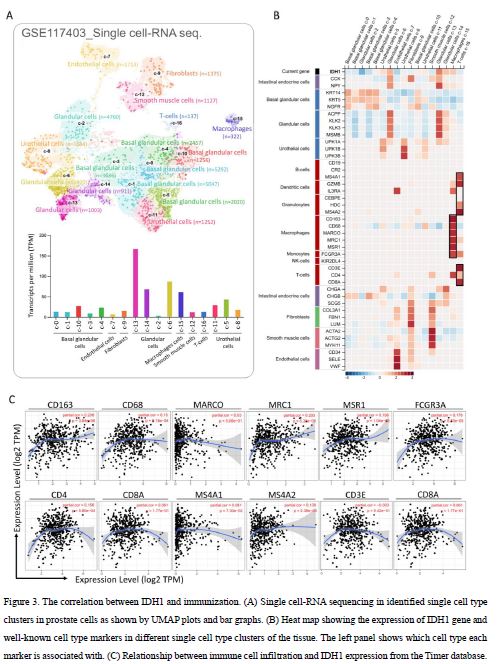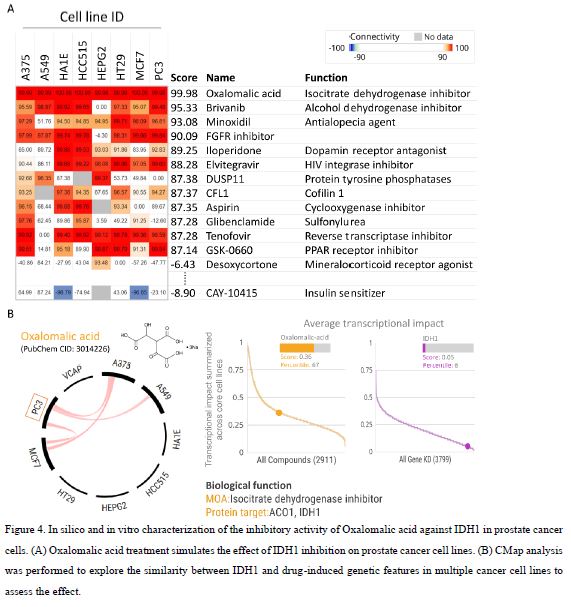Back
Poster, Podium & Video Sessions
Podium
PD07: Prostate Cancer: Basic Research & Pathophysiology I
PD07-05: Identification of IDH1 mutation and candidate drug in prostate adenocarcinoma by integrated bioinformatic analysis: Implications for next generation of prostate adenocarcinoma management?
Friday, May 13, 2022
10:10 AM – 10:20 AM
Location: Room 245
Chen-Yueh Wen*, Wei-Ting Kuo, Chia-Cheng Yu, Jen-Tai Lin, Kaohsiung, Taiwan
- CW
Podium Presenter(s)
Introduction: Mutations in the isocitrate dehydrogenase gene (IDH1) are involved in the progression of many tumors. Although the role of IDH1 in various tumors has been identified, the clinical relevance of IDH1 and its expression in response to immunity has not been investigated in prostate adenocarcinoma (PRAD).
Methods: We investigated the use of IDH1 as a prognostic biomarker for PRAD and analyzed IDH1 mRNA expression and its association with patient survival and immune cell infiltration using various databases.
Results: IDH1 mRNA expression was significantly higher in PRAD than in normal tissues, and Kaplan-Meier survival analysis showed that IDH1 expression was significantly associated with poor prognosis in PRAD patients (Figure 1). To elucidate the mechanisms involved, the correlation between IDH1 expression and the level of infiltration of immune cells was further analyzed by single cell-RNA sequence (Figure 2&3). Furthermore, we also screened the pharmacogenetics database for IDH1-specific drugs that inhibit high expression in PRAD (Figure 4).
Conclusions: In the present study, we used a combination of databases to show a significant correlation between IDH1 expression and cellular infiltration to explain the mechanism of poor prognosis in PRAD. Based on differentially expressed genes, Oxalomalic acid that potentially target IDH1 with abnormal expression in PRAD was obtained from the CMap database.
Source of Funding: None to declare




Methods: We investigated the use of IDH1 as a prognostic biomarker for PRAD and analyzed IDH1 mRNA expression and its association with patient survival and immune cell infiltration using various databases.
Results: IDH1 mRNA expression was significantly higher in PRAD than in normal tissues, and Kaplan-Meier survival analysis showed that IDH1 expression was significantly associated with poor prognosis in PRAD patients (Figure 1). To elucidate the mechanisms involved, the correlation between IDH1 expression and the level of infiltration of immune cells was further analyzed by single cell-RNA sequence (Figure 2&3). Furthermore, we also screened the pharmacogenetics database for IDH1-specific drugs that inhibit high expression in PRAD (Figure 4).
Conclusions: In the present study, we used a combination of databases to show a significant correlation between IDH1 expression and cellular infiltration to explain the mechanism of poor prognosis in PRAD. Based on differentially expressed genes, Oxalomalic acid that potentially target IDH1 with abnormal expression in PRAD was obtained from the CMap database.
Source of Funding: None to declare





.jpg)
.jpg)